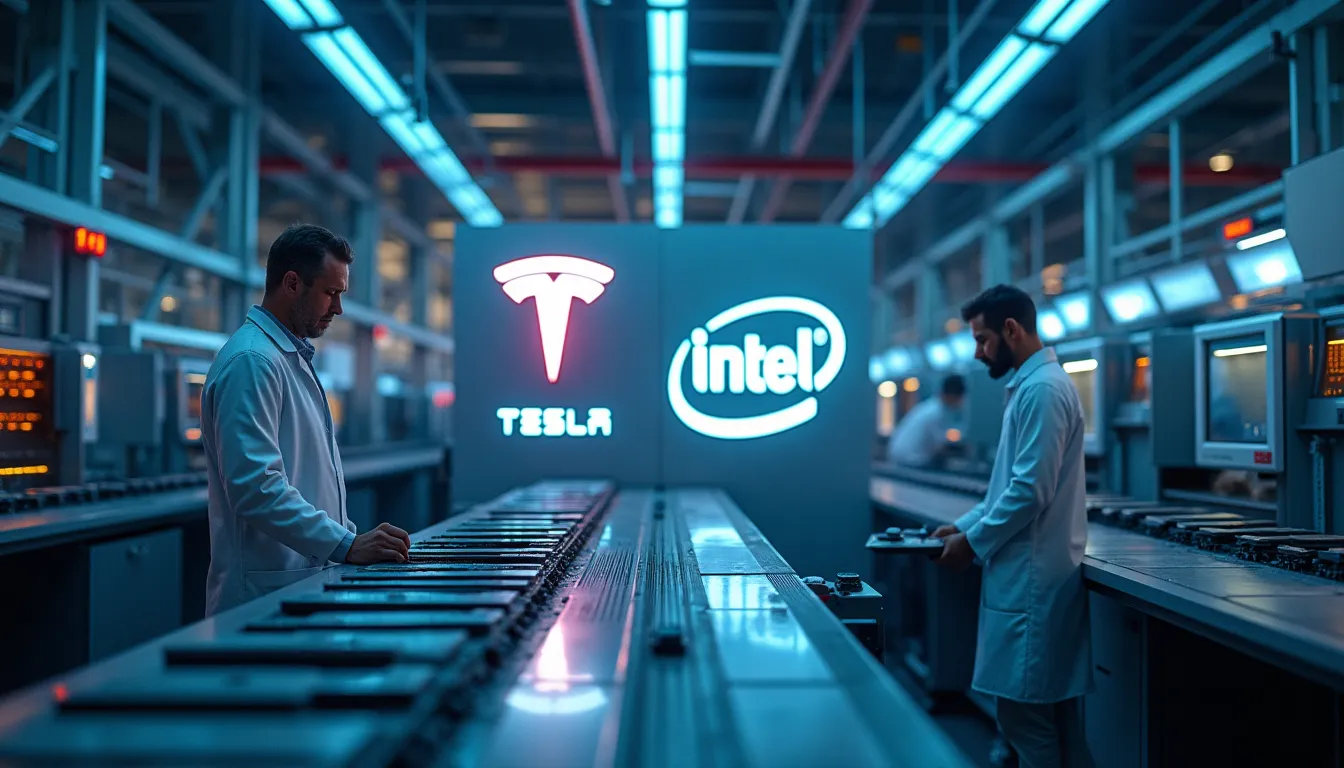Key Highlights
- Tesla considers partnering with Intel to produce its fifth-generation AI chips
- The potential partnership could deliver AI chips at 10% of Nvidia’s cost
- Tesla’s AI5 chip would consume approximately one-third of the power used by Nvidia’s flagship Blackwell chip
The recent announcement by Tesla CEO Elon Musk about a potential partnership with Intel to produce AI chips has sent shockwaves through the tech industry. This move reflects broader industry trends, where companies are seeking to optimize their supply chains and reduce dependence on external manufacturers. By partnering with Intel, Tesla aims to address its significant supply constraint, which currently limits its ability to produce enough AI chips to power its autonomous driving systems.
The Strategic Context
The potential Tesla-Intel partnership comes at a critical juncture for both companies. Tesla is designing its AI5 chip to power its autonomous driving systems, but it faces significant supply constraints from its traditional partners, Taiwan’s TSMC and South Korea’s Samsung. Intel, on the other hand, has lagged behind Nvidia in the AI chip race and desperately needs external customers for its newest manufacturing technology. The US government’s recent 10% stake in Intel underscores the strategic importance of maintaining domestic chip manufacturing capabilities.
The partnership could have significant implications for the AI chip landscape, potentially disrupting Nvidia’s market dominance. With Tesla’s AI5 chip projected to consume approximately one-third of the power used by Nvidia’s flagship Blackwell chip and cost just 10% as much to manufacture, the competitive landscape for AI chips could shift dramatically. Enterprise leaders should monitor these developments closely, as they could influence future technology purchasing decisions in the industry.
The Broader Industry Implications
The potential Tesla-Intel partnership is not an isolated event; it is part of a larger trend where companies are seeking to diversify their supply chains and reduce dependence on external manufacturers. The US-China technology competition has led to export restrictions, impacting Nvidia’s business in China. As a result, companies are exploring alternative partnerships and manufacturing options to mitigate these risks. Key considerations for enterprise decision-makers include:
- Supply chain resilience: The move toward domestic chip manufacturing addresses concerns about supply chain concentration in Asia
- Cost structure changes: If Tesla achieves its stated cost targets, the competitive landscape for AI chips could shift, leading to potential price pressure on current suppliers
- Technology sovereignty: The US government’s stake in Intel and support for domestic chip manufacturing reflect broader geopolitical considerations
Conclusion
The potential Tesla-Intel partnership has significant implications for the AI chip landscape, posing a threat to Nvidia’s market dominance. As companies continue to navigate the complex landscape of AI chip manufacturing, it is essential to stay informed about the latest developments and their potential impact on the industry. By understanding the strategic context and broader industry implications, enterprise decision-makers can make informed decisions about their technology investments and stay ahead of the curve in the rapidly evolving AI landscape.
Source: Official Link
